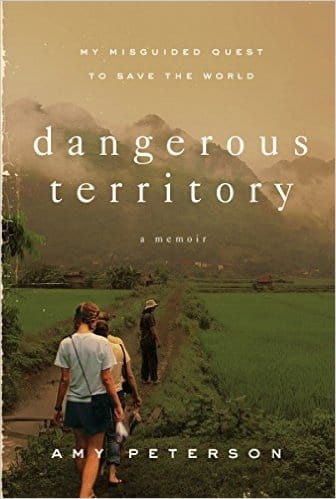The Danger of False Expectations in the Christian Life

There are certain Bible verses we hear repeated more often than others.
“All things work together for good for those that love God and are called according to his purpose” (Rom. 8:28).
“The Lord is my shepherd; I shall not want” (Psalm 23:1).
“You will keep in perfect peace those whose minds are steadfast, because they trust in you” (Isaiah 26:3).
“‘For I know the plans I have for you,’ declares the Lord, ‘plans to prosper you and not to harm you, plans to give you a hope and a future’” (Jeremiah 29:11).
These verses are beautiful and life-giving; yet, taken out of context, they can leave us with a lopsided picture of what the Christian life is like. They might give us a set of false expectations, leading us to believe that if we follow Christ, we will always live safe, prosperous, peaceful lives.
When I was 22, freshly graduated from college, laden with congratulations cards that often featured Jeremiah 29:11, I moved to Southeast Asia to teach English at a university. Though I’d be working in a country where evangelism was forbidden, I hoped and prayed that while I was there, I would have opportunities to share the love of Jesus with those I met.
Perhaps it would have been better if those graduation cards had featured 2 Timothy 3:12 - “Everyone who wants to live a godly life in Christ Jesus will be persecuted” - or John 16:33 - “In this world you will have trouble”. What I was about to experience would shake the very foundations of my faith. The fact was, at 22 I had some serious misconceptions about what following Christ would be like.
1. I thought that missionaries were super-spiritual heroes who made clear-cut moral decisions.
The missionary biographies I had read as a child told heroic stories where prayers were answered miraculously and the good guys were always good, the bad guys always bad. I never read about missionaries doubting God or second-guessing their decisions.
But I found that many aspects of cross-cultural work were complicated. God didn’t always answer my prayers, at least not in the way I expected. Eventually, when tragedy struck, I struggled to believe in God’s goodness. Missionary life was much more complex than I had expected.
And my idea that missionaries were “super-spiritual” kept me from recognizing the spiritual greatness in the “ordinary” Christians sitting in the pews back home, faithfully praying and working for God’s kingdom in their normal, everyday lives. There was no hierarchy of spiritual vocations: their work was every bit as important as a missionary’s work.
2. I thought that if I were following Christ, I would be safe.
Certainly in an ultimate sense we can have confidence of our eternal security: nothing can separate us from the love of God (Romans 8:39). But while we are on earth, we will face trials and tribulations. Following Christ is no guarantee of safety, comfort, security or peace on earth.
I was shocked when my young Asian friends faced persecution for their faith, but I shouldn’t have been. My unrealistic expectation had been that God would protect them in the ways that made sense to me. But God did not conform to my expectations.
3. I thought that way I understood the Bible was the only right way.
What I learned was that my understanding of the Bible is deeply influenced by the time and culture in which I live, by the context in which I’ve studied. Reading the Bible with people from a culture that was collectivist rather than individualist, relationship-oriented rather than task-oriented, and hierarchical rather than egalitarian opened my eyes.
Simply hearing the words of Scripture in the new context of Southeast Asia gave them fresh meaning. Before that, I sort of understood what it meant for Jesus to be “the bread of life.” But not until I lived in a place where every meal began with a bite of rice to honor the food that brought ancestors through famine, where every meal relied on rice (and, for many of my students, was little more than rice), where “how are you” translated literally as “have you eaten rice yet?” did I begin to comprehend what it meant for Jesus to be the bread of life. Here, he was the rice of life.
Coming home from two years in Southeast Asia, I found that if there was one thing I could always reasonably expect from the Christian life, it was this: I could always expect that God would love me — and that God’s love would surprise and confound me as often as it comforted me.
It’s reasonable to expect that I’ll be wrong, over and over again, in what I think I know of God. I look at all that God has done, and I exclaim with Job: “And these are but the outer fringe of his works; how faint the whisper we hear of him! Who then can understand the thunder of his power?” (Job 26:14)
God’s ways are higher than our ways. Maybe my idea of who God is was just a card-house construction, ready to be knocked over at the first hint of adversity. After all, as C.S. Lewis wrote, my idea of God was not a divine idea: “It has to be shattered time after time. He shatters it himself. He is the great iconoclast. Could we not almost say that this shattering is one of the marks of his presence? The Incarnation is the supreme example; it leaves all previous ideas of the Messiah in ruins.”
Rather than being shaken by the collapse of our false expectations and limited ideas about God, we can take great comfort in this. God is beyond what we can imagine, and He will continually shatter our sense of who He is. This is the mark of his presence. We will always be at least partly wrong; yet we will also always be wholly loved.

Amy Peterson is a writer, English as a Second Language instructor, and assistant director of honors programming at Taylor University in Upland, Ind. She has a master’s degree in missions and intercultural studies from Wheaton College and has used it to work with people from over a dozen countries. Amy lives with her fellow adventurer husband and their two children on two acres of Indiana farmland.
Image courtesy: Thinkstockphotos.com
Publication date: February 1, 2017
Originally published February 01, 2017.




